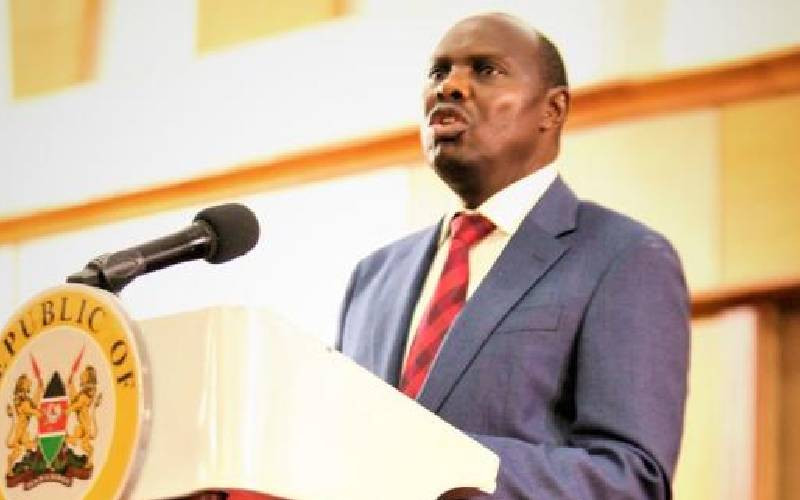×
The Standard e-Paper
Stay Informed, Even Offline

Head of Public Service Felix Koskei addressing government officials at the Kenya School of Government on Lower Kabete, Kiambu County, Wednesday, June 21, 2023. He warned the administrators, supply chain management officers, accountants and auditors against corruption. [Edward Kiplimo, Standard]
Claims of "orders from above" will not be tolerated even as the government warned civil servants against engaging in corruption.